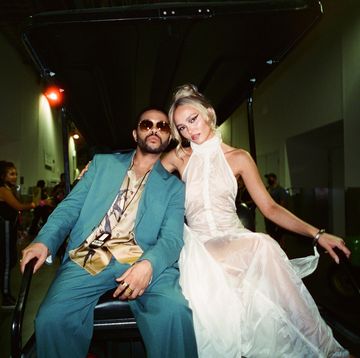In the seventh episode of Industry, the HBO/BBC co-production set under the soul-destroying strip-lighting of a trading floor, a manager and his junior female employee talk around the subject of whether she should report the man on her team who has been bullying her. "As your boss I'm telling you you have the option to formalise this," he says before trailing off. "Person to person? I don't see where that gets you."
Their conversation is typical of interactions on the show, where coworkers pretend to look out for one another and management's pastoral care extends to sympathetic nodding and other empty performative gestures.
Industry is about an intake of graduates fighting out for a permanent spot at a London investment bank, but the Hunger Games-esque atmosphere of competition and suspicion underscores every interaction we see: a bitter mother and her unfeeling daughter, two friends who fancy the same person, a misfit VP enraged by his privileged coworkers.
The in-take of graduates competing for a job at Pierpoint bank include spoilt and nervous Yasmin, Jack the Lad Rob, cerebral Oxford alumni Gus, and Harper, a driven American who has forged her university transcripts and yet is outpacing all her contemporaries. As the series unfolds the nightmare of this world comes into focus, with the underhand strategy to gloss over the death of one of the grads in the opening episode setting the tone for what is to come.
As the show progresses the question is less who will end up with a job, but rather who would actually want one, and the cleverness of the show is in creating a cast of characters who, each for their own reason, crave the affirmation which this world offers.
The Lena Dunham-directed series, which The Daily Mail noted with outrage contained "a lot of banging and very little banking", is a workplace drama which makes a dystopian nightmare out of the world of finance. Here the sterile corporate office is characterised by the background hum of phones ringing and snatches of conversation in which you can make out phrases like "suicide rates", "baby biceps" or "Pre-08 Nobu".
Somewhere between Billions for teenagers and Skins for grown-ups, here drugs are swallowed and snorted in every cubicle and party we see, and lines like "It's gonna be a two bag affair" and "gakked to the gills" are part of the jargon in an office where drug taking is another element of the toxic bravado always on display. Even gym workouts become about power and sexuality when performed in front of coworkers.
As in Succession, sex is really about power, and Industry's central love triangle is mainly comprised of teasing affection and then withdrawing it as a way to feel in control. When Yasmin and Rob finally get together in the office bathroom of the work Christmas party, she orders him to masturbate in front of the mirror and won't let him touch her. Later a threesome becomes a literal competition as one participant is squeezed out. "Would you describe yourself as a horny person?" a senior female banker asks Yasmin over drinks, a question which feels more to do with being serviced than pleasure.
Industry plays with the clichés of male-dominated environments, so we see senior men gaslighting and manipulating women instead of directly hitting on them, operating in a grey area that is hard to call out. When Harper is locked in a room by her sociopath of a manager, or when Yasmin's coworker calls her bluff about reporting his behaviour, they are both left questioning if what what they know to be true really did happen.
The graduates might be the ones competing for a job, but it is their interactions with the adults running the show where the fangs really come out. These are the people who use phrases like "are you a team player?" to ensure people's silence, or refer to the crossing of boundaries as "a misunderstanding" to remind you that you have no power. Bosses wield baseball bats on the trading floor and push junior women into getting lap-dances in front of clients, because to go against the grain would only harm you, not them. Sexual violence never quite shows its face, but the threat of it is everywhere.
In the finale we see the same conversation of clearing up inappropriateness, this time with different men and women and in a different room. The head of the bank wants Harper to "smooth over the inconsistencies" and retract her statement to HR so that her boss can return to work.
Within a television culture numb to defiant girlboss speeches and women rallying together, Industry delivers its most shocking moment in doubling down the relentless pursuit of power that Harper has demonstrated through the series. She knows siding with the man will benefit her career down the line, feminist solidarity be damned. Although the prize was meant to be a spot with other grads, the dramatic conclusion proves that she was playing her own game all along, one with much higher stakes.

















